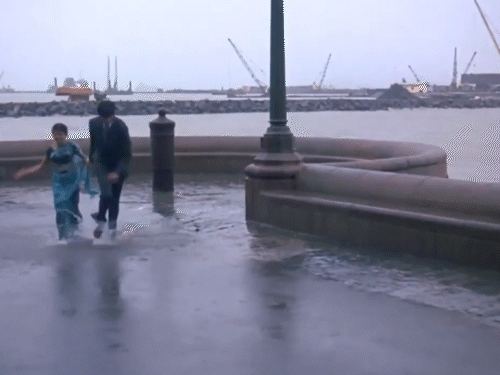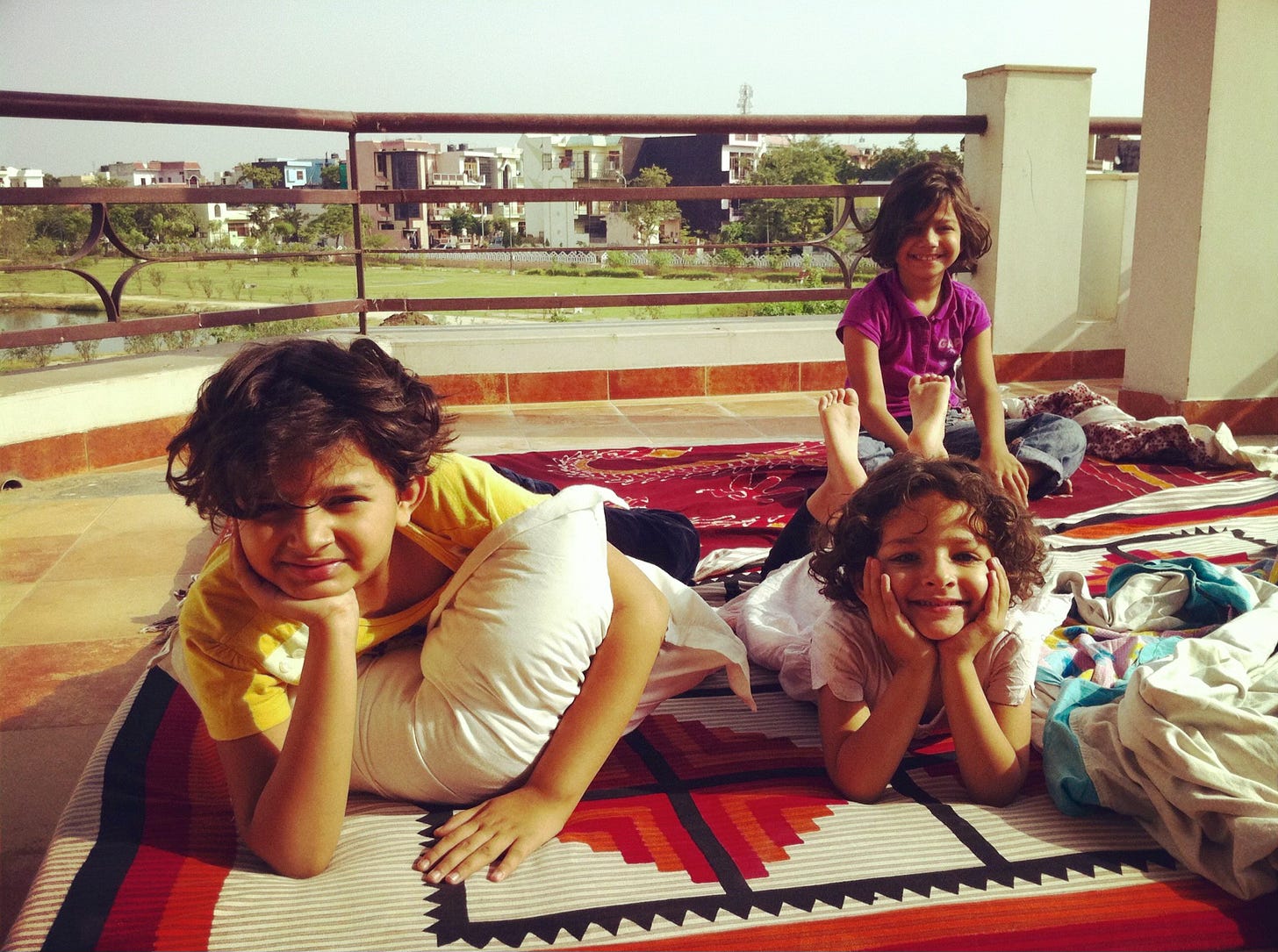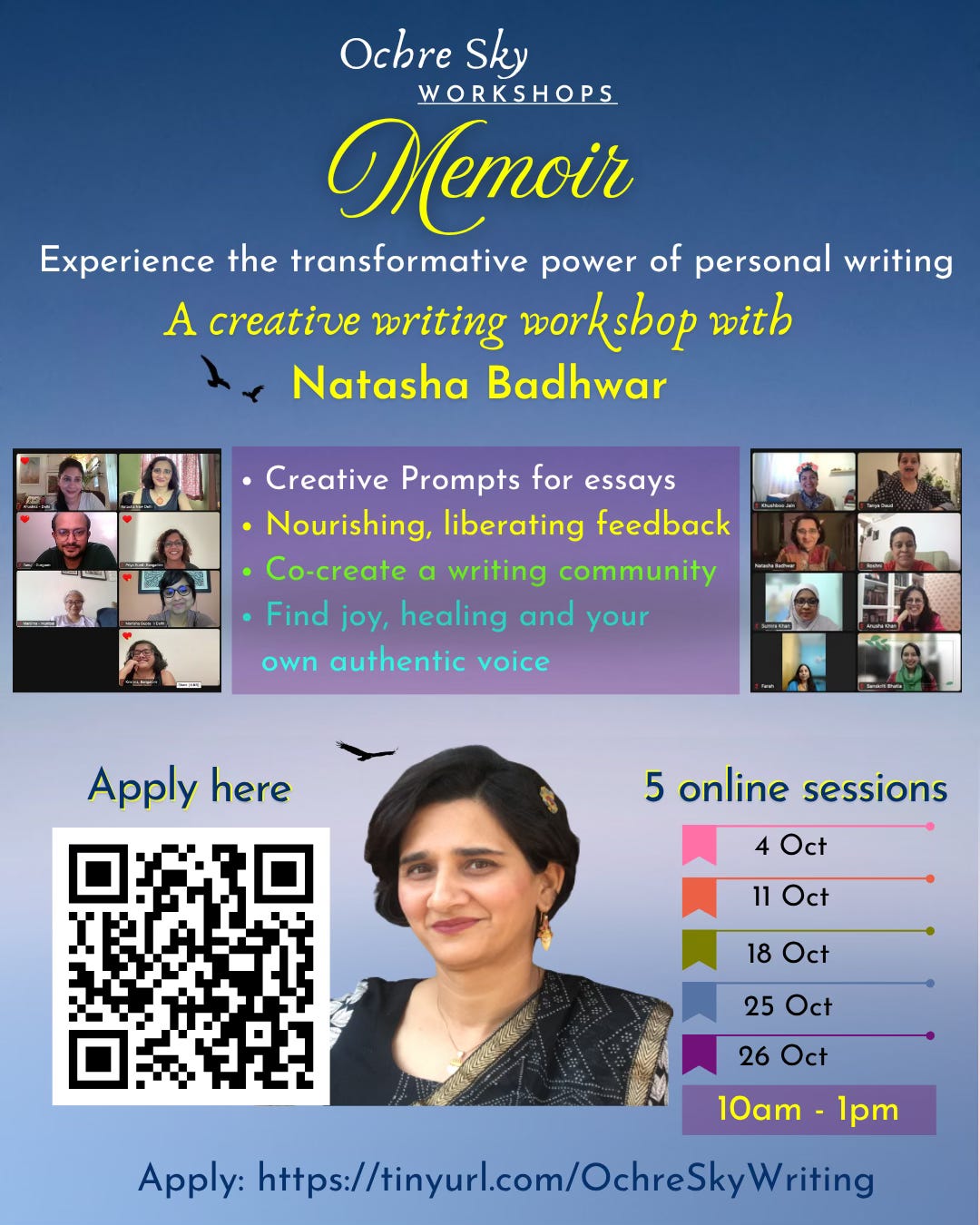And then it rained...
Does the rain really heal? Does it help us let go? What are your memories of raindrops that keep falling on our head?
I don’t understand umbrellas. They don’t fit conveniently into bags, they never stay in the place allocated for them at home and they are useless when it really rains in India. Besides, they almost always get lost when we take them out with us.
That’s exactly what happened to the umbrella my husband and I had carried to Pune with us. It chose to stay on in the first auto we travelled in, and that’s how we found ourselves walking the full stretch of Baner Road in the rain. We could have booked a taxi or waited at a bus-stop, but we had finished our day’s work, our children were safe in another city and there really was no reason for us to not keep walking in the rain and try to remember romantic rain songs from Hindi films without relying on our smartphones. It had been years since I had channeled my inner Moushumi Chatterjee anyway.
Besides bathing the dusty trees and thirsty plants in our cities, monsoon showers always manage to wash away my inhibitions too, making me feel a tangible sense of happiness. Rain evokes memories of other rains.
BORN IN THE MONSOONS
I was looking out from the verandah in our suburban home in Ranchi. It was one of my early birthdays. An exuberant July rain was pouring down in the darkness. Behind me was a feast prepared by my mother – gulabjamuns, dahi bhalla, pulao and cake. None of our family friends had cars. How would the guests arrive on scooters?
I didn’t know it then but my parents and their friends were young. One by one our guests arrived, drenched under their raincoats and umbrellas, with their own little children wrapped in layers of protective clothes. Everybody was laughing louder than usual. The rain had become part of my birthday celebrations.
I was in Class II when the floods came. We had moved to Kolkata, but the city was still called Calcutta at that time. On the first day of incessant rains, we had been in school since morning. Older students had to wade through knee deep water to reach the school buses that were parked further away than usual to avoid the waterlogged areas. Younger children were lifted over the flowing muddy water by bus conductors and school staff. I can still hear the roar of sounds. Loud voices speaking in Bangla, some children scared, most of them excited. The rain, the slush, the strong hands under my armpits as I was transferred from one person to another in a wave, and deposited in my school bus.
By the time I reached home after 2 hours of navigating the clogged city roads, I had developed trench feet. The skin of my soles seemed to have melted inside my wet socks and shoes. My mother applied mustard oil gently and brought me food where I was sitting. It was hours before I could stand on my feet again.
For four days, Kolkata was flooded. As a child, I thought it was fabulous. Schools were closed. Our father was home all the time. Our ground floor neighbours were sharing meals with us because their kitchen and rooms were flooded.
AN UNEXPECTED SCOLDING
“Papa, this is great, the floods should continue,” I exclaimed, standing in our balcony and admiring the handiwork of the rains.
Papa lashed back at me. It was one of those unexpected comebacks that has stayed with me. “Have you thought about what people in the slums are going through? Do you think everyone else in the city has a first floor balcony and a kitchen stocked with supplies to admire this rain?” Then he spoke about destroyed crops and the plight of farmers. My father has grown up in rural Punjab and extreme weather always makes him worry about its impact on crops.
For a long time, we would check with him if it was okay to celebrate rain from the farmers’ perspective.
RAINDROPS AND BABIES
It began to rain in Port Blair when I was standing at the threshold of the hospital with our first-born baby, ready to take her home with us. My mother and I came home in a kali-peeli Ambassador taxi and my husband rode back on his Yamaha RX100 motorcycle in the blinding rain. It seemed cinematic at several levels.
It was raining in Delhi when we were returning home from the hospital after the birth of our youngest daughter. This time it was a September rain. That rain marked relief. It cooled down the city. It welcomed the baby. It spoke to me, telling me that everything was going to be all right.
It had begun to rain unexpectedly as soon as my mother-in-law’s funeral procession left our home in the village to go towards the burial ground. Our tears were no match for what the skies offered to us.
WASHING AWAY THE BLUES
Does the rain really heal? Does it help us let go? It certainly speaks to the inner child in most of us, daring us to walk into its shower, roll up our clothes and create a splash instead of walking around every puddle that reflects the sky.
In between the arrival of the babies, when my husband and I began to build our home in a suburb of Delhi, we studied books on sustainable design and climate-responsive architecture first. We wanted to understand how to design a home in which the interiors could be protected from the extreme temperatures of the north Indian plains. We engaged an architect who altered the angles of the walls to the extent that it feels like we live on a ship that has run aground.
The house still remains mute and passive in the face of peak summer and winter, but it certainly responds to the monsoons. We have more windows, balconies and verandahs than I can dare to confess and each one of them welcomes the rainy season, allowing the inside and the outside to embrace each other.
We often drag mattresses outside to the covered verandahs to sleep in the monsoon breeze. There is a small window of time after peak summer is over and before a fresh batch of mosquitoes arrive. Keeping pace with the seasons of the city can be tricky but it is also life-affirming in ways that many of us have forgotten.
It was raining all around me when I first wrote this piece on a weekend from my home in our village. First our children ran out towards the gate to feel the raindrops on their head. Exhilarated, they ran back, telling me that they are going to the terrace to play in the rain. At least for now, it is great to be alive.
What are your memories of raindrops that keep falling on our head?






My father was buried today. This was just the lullaby I needed. Thank you, Natasha.
Rain may not take the pain away, but it softens the edges. And sometimes, like the quiet arrival of mushrooms after a storm, healing appears gently, unnoticed at first, but full of grace. A reminder that even in our heaviest moments, something kind can still find its way through.